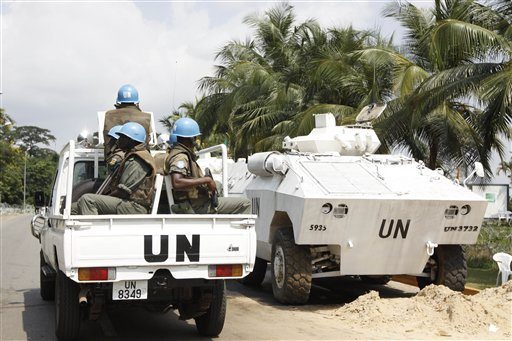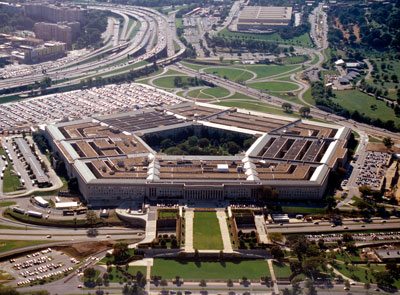Fighters backing internationally recognised Ivory Coast president Alassane Ouattara claimed fresh gains Tuesday in a push into areas controlled by his rival Laurent Gbagbo, capturing a sixth town.
The pro-Ouattara Republican Forces seized the eastern town of Bondoukau, residents said, a day after launching their biggest offensive since a disputed November presidential election that Gbagbo refuses to accept he lost.
“The town has fallen, I am looking for a way to leave Bondoukau,” one resident said.
“There was fighting this morning, they are parading about the town shooting into the air,” another told AFP by phone, adding the fighters where heading further south towards Agnibilekrou.
The pro-Ouattara force controlled the north of the Ivory Coast in terms of a ceasefire to end fighting after a failed 2002 coup; on Monday they moved south of the ceasefire line, attacking Bondoukau as well as Duekoue in the west and Daloa in the centre-west.
Bondoukau became the sixth town to fall to Ouattara’s army since mid-February, when the conflict escalated.
From their stronghold of Bouake in the centre of the country, Republican Forces spokesman Seydou Ouattara said his men “control Dalao, Bondoukau and Agnibilekrou.”
They were moving towards Abengourou, 200 kilometres (120 miles) northeast of the economic capital Abidjan, he said.
This could not be immediately confirmed by an independent source.
Fighting continued Tuesday in Duekoue, a source from Gbagbo’s army chief of staff reported, after fierce battles on Monday.
The strategic town is 300 kilometres north of San Pedro, the world’s exporting port for cocoa, of which Ivory Coast is the premier global producer.
“There are rebel incursions, they have installed themselves in suburbs favourable to them,” he said, adding though that the pro-Ouattara forces did not control the whole town.
The situation was similar in Daloa, the country’s third biggest city, he said.
The election four months ago was meant to re-unite the Ivory Coast after its split following the coup attempt against Gbagbo; instead the strongman has rejected results that he lost the presidency after some 10 years in power.
The deepening political crisis and escalating election-linked violence have left at least 460 people dead with as many as one million fleeing their homes, according to UN agencies.
The international community has raised fears the stand-off is pushing the country into full-blown civil war.
Several attempts to find a diplomatic solution have also failed.
Most recently, Ouattara rejected last week the African Union’s choice of former Cape Verde foreign minister Jose Brito to mediate an end to the crisis, objecting that he had close links with Gbagbo.
“President Ouattara has his reasons, which I respect,” Brito told AFP.
“I don’t think it will be possible to advance if this position continues,” he added, arguing that his closeness with Gbagbo was a trump card and not a constraint.
In Paris a lawyer for Ouattara compared the situation in Ivory Coast with that of Libya and accused the international community of double standards.
“They have launched an operation in Libya fearing that Kadhafi … kills people in Benghazi, while Laurent Gbagbo has already started killing people and is continuing to do so,” lawyer Jean-Paul Benoit said.
The UN Security Council is examining a draft resolution to strengthen the mandate of the UN peacekeeping mission in Ivory Coast and protect civilians.
The UN refugee agency said in Geneva Tuesday that it expects a significant number of Ivorians to flee to Ghana and Liberia if the situation worsens.











